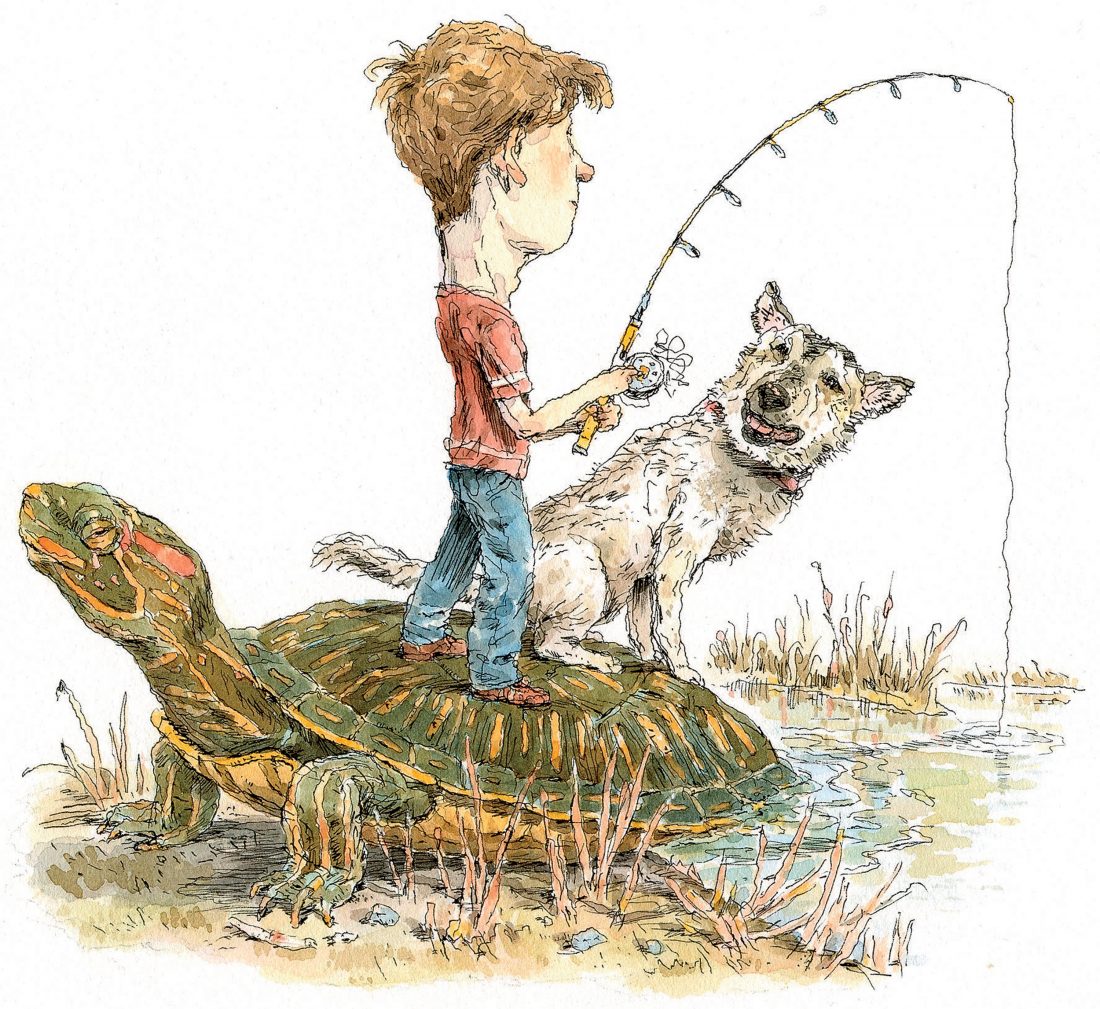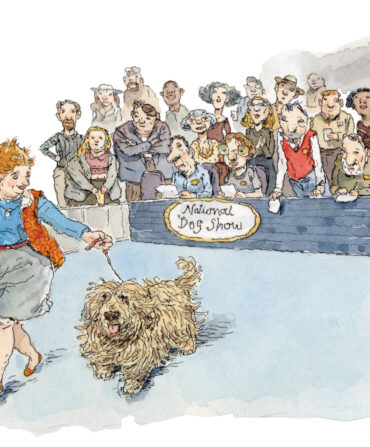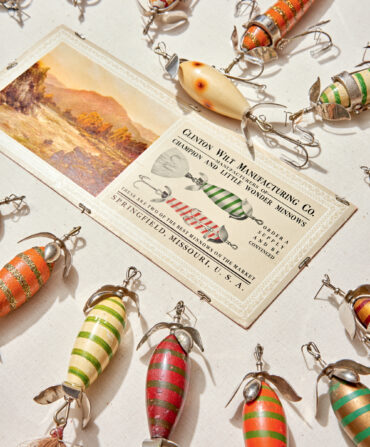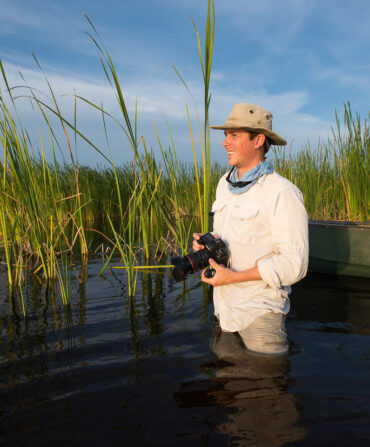I was thirteen that summer, and my problem was making dogs pay. Or making one dog pay, our youngest dog, Josh. His father, Moses, was past paying for anything. Moses was a ten-year-old chow, and by June, he mostly just sat under the porch, panting. But Josh, half malamute, was two years old, young and as energetic as a wolf. He even looked like a wolf—pointed nose, pointed ears, arrow-shaped head, a white coat, tail bushed up, coal-black eyes. He had purple splotches all over his tongue—Moses’s tongue was solid purple—and after a run, sitting beside me, panting with it stuck out, he looked like he was nodding in agreement.
“Listen,” I told him. “I’m going to need some walking-around money.”
Josh nodded, panted.
I usually didn’t worry about money; I lived with my grandparents on their cattle ranch in Oklahoma, and they took exceptional care of me. But we’d started going to a new church where most of the congregation fished—the pastor fished, the youth leader fished, the pianist and her husband. On Sunday mornings, they were fishers of men; every other morning it was striped bass. I’d made a new friend named Leslie, and he’d looked at my Zebco 202 with disdain. He and the pastor had the same reel—an Ambassadeur. It cast smooth, and the line never tangled. When I pointed it out to my grandfather at Walmart, he pointed out that it cost sixty dollars, which was like birthday-card money from three different relatives.
“What’s wrong with your Zebco?” he asked.
I didn’t have the vocabulary to tell him that nothing was wrong with it; everything was wrong with it; it wasn’t an Ambassadeur. It didn’t smoothly negotiate with fish and lure them to the shore. With the Zebco, every catch was a struggle. So, my granddad told me what he always told me when my birthday or Christmas was too far in the future: Save up for it.
Sure, but save up what? We lived too far out in the country to collect aluminum cans. Hay season had come and gone. My allowance was a limp five-dollar bill once a week. Too early to cut wood. I stroked Josh’s neck and pondered my poverty.
Then we saw a flyer on one of our trips to Walmart, handwritten, tacked up on the bulletin board: A woman north of Seminole was paying for turtles. Fifty cents for every turtle delivered (with no upper limit). I took down her phone number and called her.
Here were her turtle rules:
No snapping turtles.
No dead turtles. (She’d been burned on this before.)
No sick turtles.
No baby turtles; all turtles had to be at least as big as your hand.
I told her I had small hands. She said that was fine.
What she didn’t know was that I had a secret weapon: Josh. He was always catching turtles on our walks in the woods. He’d fetch them and carry them around in his mouth, and if I didn’t take them away from him when we got back to the house, he’d sit there in the shade of a tree, gnawing at their shells.
I got myself a gunnysack the next morning and went right to work. There are laws nowadays about collecting turtles, but this was the early 1980s, and if there was a law against selling turtles for profit, I certainly didn’t know about it. My grandmother was only worried about two things: snakes and my getting too hot. She wanted me to carry a stick to defend against snakes, Gatorade to defend against heatstroke.
“I’m going out for turtles,” I’d tell her.
“Take a stick,” she’d say.
“I will.”
“Take your thermos.”
“Yes, ma’am.”
I’d take a swig of Gatorade from the refrigerator and my .410 from the pantry—better than a stick any day.
“I’ve got my shotgun,” I’d call to her.
“What?” she’d say.
“My shotgun.”
“Take your shotgun.”
“Yes, ma’am.”
Josh and I would walk out into the thicket of blackjack and evergreen. “Get ’em,” I’d say, motioning for him to take off. And off he’d go, disappearing into the woods. Then I’d just walk around, snapping off limbs, gunnysack over my shoulder, daydreaming about quarters. I wondered where turtles lived when they weren’t crawling around. I wondered if they traveled together. I only ever saw one at a time.
After five or so minutes, I would clap my hands twice, slapping my fingers into the cup of the opposite palm, two claps that reported through the woods like gunshots. I’d wait a few moments, then I’d hear leaves crunching, wait a few more moments, leaves crunching louder, then Josh would appear, threading his way toward me through the trees, head up, tail up, turtle between his jaws.
“Come here,” I’d tell him, and he’d come. I’d remove the turtle gingerly from his mouth, slide it into my sack. Josh would watch, sniffing, smacking his mouth, panting. I’d pet him real good, scratch his ribs like he liked.
“All right, Josh dog. Let’s get us another!”
He’d stare a moment, then go bounding off. He seemed to understand.
We’d haul in half a dozen or so turtles a trip like that. Around three dollars. I’d put the turtles in a cardboard box in the garage, put some grass in with them, a few carrots. Did turtles eat carrots? I thought so. Evenings, I’d take a pen and paper out to a lawn chair, pet Josh, feed him a couple of cookies I smuggled out of the house in my pocket, and try to strategize.
“We need to up our turtles, Josh.”
Josh would look up at me panting, seeming, for all the world, in absolute agreement. He’d watch to see if any more cookies were forthcoming, and then stretch out there on the ground. I tried to explain the importance of getting that Ambassadeur. I tried to explain the importance of fitting in. I tried to explain why a Zebco just didn’t cut it.
Josh heard and agreed with every word.
Then, one day, there were no more turtles. No turtles in the south pastures where our Brahmans grazed, and none in the west pastures with our beef cattle near the barn. None on the banks of the pond. None in the west woods or south woods. None along our property line to the east. Josh and I reconned every foot of our eighty acres, and then beyond onto our neighbors’ property. We’d apparently evacuated this patch of America of turtles. I couldn’t believe it. Neither could Josh. He looked for any sign of turtles just as fervently as I did. I told my grandparents to be on the lookout for turtles. I considered telling my friends, other farm boys, but then realized they’d probably want the turtles for themselves, and then my problem would be competition.
At the end of the month, my grandmother drove me over to cash in our turtles. The woman walked out onto her porch when we pulled up and came down to the car. She and my grandmother chatted a while, and then they popped the trunk. The woman carried a Hefty bag in one hand and began sorting among the various specimens, picking out the ones she wanted. She was particular. That one had a cracked shell and wouldn’t work; that one was oddly colored; that one was too small. In the end, she took only half of what I had. I was crushed.








